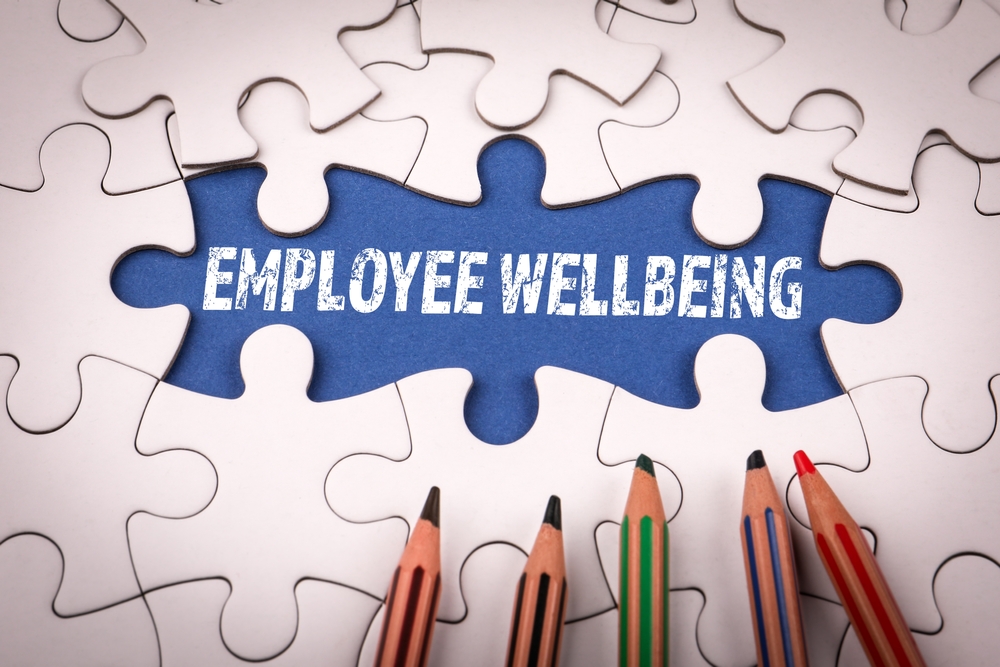Bereavement at work is something that does come up from time to time, is often unexpected, and is always challenging. This article will offer tips for individuals to support themselves through this difficult time, and also for managers to support grieving team members.
Grief is different for everyone, and the impacts upon work will be varied. Some people may need a lot of time off, some will be very emotionally open with colleagues and managers. Some people will continue with business as usual, but there may be subtle impacts on their interactions and their work. Some people will withdraw, perhaps becoming hostile, and turn to coping mechanisms that may help them in the short term but are detrimental in the long term.
Tips and tools for leaders
Managers and leaders can understandably feel ill-equipped during these times and may struggle with the following dilemmas:
- My team member is very distressed and has had a lot of time off. It has been a while now and I need them to return to work / return to their usual standard of work, but I don’t want to be insensitive. How do I tackle this?
- My team member is telling me a lot about their personal situation in supervision. I do care about their wellbeing, but I don’t really know what to say.
- I imagine that (or I can see that) my team member must have been affected by this bereavement, but they keep telling me they’re fine. How can I support them?
- I’m worried that the stress this person is going through is affecting their performance or their communication with others. I know I need to address it but I’m not sure how because I understand they are bereaved so I don’t want to seem insensitive.
Each individual situation will need a slightly different response. If you’re organisation needs leadership training or support around this topic, please contact me (details at the end of this article). Signposting to helpful resources is always a good response in any situation and I can always recommend some good websites that best fit the situation. This page has some great advice and downloadable resources for line managers specifically.
As a rule of thumb, I think one of the great challenges of being a manager/leader is striking the balance between being a good human and being a good manager. You do need to bring empathy and compassion, so that your team member feels supported (the most dissatisfied employees are always those who were expected to just come back to work and get on with it, with no acknowledgement of their pain). However, you also need firm boundaries – a manager is not a therapist. One-to-ones can touch on an individual’s personal experiences, but ultimately should focus on the impact on their work, and how they can be supported specifically in the workplace. Sometimes, this does necessitate highlighting that a minimum standard is not being met and proposing appropriate support options. Dilemma #3 is a little different and perhaps in a work setting, if the individual is still performing well, it is OK that they don’t want to open up about personal issues. I would still always give them that opportunity by checking in and encourage them to seek support from other sources outside of work.
What (not) to say to someone who is bereaved
For colleagues, the number one question I get asked is “I don’t know what to say to them”. I don’t think there is a “right” thing to say to someone who is grieving but there are some wrong ones:
- Nothing. So many people just avoid the person or avoid the topic. This is unsupportive and can leave the bereaved individual feeling very isolated. The most common reason that people do this is because they don’t know what to say to help or fix the situation. You can’t fix the situation – you don’t need to try. What you need to do is acknowledge it and offer whatever support the person might need (which you can’t know without asking). A good rule of thumb is just to say something that hits the following points:
-
- Acknowledge they have experienced a loss.
- Tell them you are there to support them in whatever way they need, whether that is to talk about it, to distract them and take their mind of it, to offer practical support with work tasks, or any other options that seem relevant. Often the person will say they’re not sure what they need, but they will most likely appreciate you saying something.
- “I know exactly what you’re going through”. No, you don’t. Every bereavement is different. People usually say this because they are trying to express empathy, but this can inadvertently come across as invalidating. There are ways of rephrasing this to express a similar sentiment but acknowledge that their situation is not yours. For example, “I lost my mum too recently. I know your experience won’t be exactly the same but I’m happy to chat to you about the things that helped me, if you feel that would be useful”.
- “That sounds tough, maybe you should do X”. If someone is opening up to you about what they’re going through, they probably don’t need you to problem solve. Again, it is not your job to fix/solve their situation. The most important thing you can do is listen.
-
One thing that I always encourage is to check in regularly over time. This can be a game-changer, because most people forget that someone has had a bereavement after a couple of weeks. Grief takes its own timeline, and it can be so hard coming into work several months after a loss, still feeling raw and sad, and not receiving anything acknowledgement that things might still be difficult for you. I’m not suggesting you bring it up in every conversation, but maybe after a month, several months, or a year (because one year anniversaries of deaths can be very challenging), you could say “Hey, I just wanted to check in and see how you’re doing”. Even if they’re fine, they’ll most likely be appreciative of your thoughtfulness.
The mystery of compassion
Compassion is a widely misunderstood concept. In the context of this article, compassion may be misunderstood as letting others/yourself off the hook, being soft, being weak. This is very much not the case. I chose the title of this article because we do have to be gentle with ourselves and others during times of loss. One half of the definition of compassion includes qualities such as sensitivity to suffering and empathy. For managers, this may include making reasonable adjustments or offering appropriate emotional support (as outlined above). For bereaved individuals this may include readjusting our expectations of ourselves, knowing when to hand over projects, and allowing ourselves time and space to actually grieve (as outlined below).
But compassion goes beyond this. The second half of the definition is about strength, courage and wisdom. I think this is where people struggle – this is not instead of the first part, it is alongside. For managers, this may include holding appropriate boundaries and ensuring that your team member is still delivering their role safely and effectively. For individuals, self-compassion may include drawing on resilience to stay strong and keep going without completely suppressing the pain – this is hard! It may also be using the wisdom to know what you cannot handle at this time, and asking for practical support as appropriate – this is also hard because we have to recognise that we’re not being weak, we’re being wise. This is why the ability to acknowledge vulnerability (to select people whom you can trust) is actually a sign of strength.
Resources for coping with bereavement
There is a lot I could say here, but with limited space I’ll just cover a couple of key points:
- There is no timeline on grief. Some people might start moving through the grief in a few weeks, for others it may take a few years before they feel like they are readjusting.
- Grief brings up lots of emotions, some may even be conflicting. We may feel sad, angry, guilty, relived, anxious, numb, and many other emotions. When these emotions come up, let them be there, and if you can, acknowledge them as individual feelings (this last bit can reduce the feeling of overwhelm).
- Grief also has wide ranging impacts on our functioning. It can affect sleep, appetite, concentration, motivation, and change our world view.
- Focusing on basic self-care is always important when we are grieving. It may seem difficult or even pointless, but we must remember to eat, carry our daily essential activities, and connect with our support network.
In my opinion there is not a “best” way to cope with grief, but I think there is a “wrong” way, and that is not processing it at all. I once watched an excellent episode of a cartoon TV show that depicts this perfectly. Grief is characterised as a fuzzy jumper, who wants to be let into a bereaved man’s life – the man shuts him out and keeps shutting him out. The man is struggling and isolated but is pretending he is OK. The grief jumper gets progressively bigger and more aggressive, trying to smash through the walls of his house. Eventually, the man connects to his grief with the help of his daughter and the grief jumper reverts to a cuddly friendly jumper that the man is now wearing. The man says “I still feel sad, but this feels a lot better”, and is now able to allow his daughter to support him as he supports her in return. Grief doesn’t feel good but if we suppress it, it will become a destructive force in our lives. If we allow space for it, we will move through it. It can also connect us to others and bring warmth. Loss isn’t something that will be fully reversed and is a byproduct of having cared for someone, so it is unrealistic to expect the grief to ever completely go away, but it will become a less dominant force in our lives over time. (Quick side note – some people experience Prolonged Grief Disorder, which does need professional support.)
There are many great free resources available for coping with bereavement. I’m always happy to signpost people to these, so do get in touch if you need any ‘clinical-psychologist-approved’ resources! One of my favourites is a booklet published in collaboration by Rothesay and Cruse, a charity who also offer bereavement counselling. There are lots of fantastic resources out there, but I love this one because it includes all my favourite models of grief in one short pdf. For example, the idea that after a bereavement we may oscillate between two different mindsets – one that is focused on the loss, and one that is focused on coping and readjusting to normal life again. Often people feel guilty for forgetting about their grief for a while, but this is totally normal, and over time you will likely spend more time in the latter mindset. You should expect your motivation and concentration at work to wax and wane, so it is important to draw on wisdom to know when to give space to the grief.
If you’re someone who gets stuck in ‘coping mode’ and find that you aren’t allowing yourself any space to connect with your grief, I recommend an adapted version of a tool called ‘worry time’ (we can call it ‘grieving time’ for this purpose). Choose a time of day, not before bed, you might choose 6.30pm for example. Set a timer for 10 minutes (or a bit longer if you wish). During this time just sit and allow any emotions that surface to come up and be there. Maybe nothing will come and that is OK, but don’t push anything away. Maybe you’ll have a cry. After 10 minutes, go and do something else like cook dinner, call a friend, go for a walk. Do this every day. What you are doing is allowing yourself to process the grief in bitesize chunks. Many people fear that if they start crying they’ll break down and never stop – this is highly unlikely to be true and it is empowering to realise that we are able to dip in and out of our difficult feelings. Conversely, suppressing grief and other difficult emotions usually does lead to detrimental outcomes in the long term.
What I can offer if your organisation needs further support
This was an impromptu article that I was inspired to write due to personal events in my own life over recent months, but it highlights how much value a Clinical Psychologist can add to your business as a wellbeing partner. The breadth and depth of training and experience means that a clinical psychologist is well placed to offer evidence-based solutions to a wide range of wellbeing issues your business may be experiencing. The problem you hire an expert to solve may be hiding other issues beneath it, or new issues may occur including crises. In these situations, many coaches or consultants would need to defer to another specialist, but Empresa Psychology is likely to be able to offer bespoke solutions. Send me a direct message or email me at NatalieIsaia@EmpresaPsychology if your organisation would like doctoral-level expertise in bereavement at work or any other corporate wellbeing solutions.






